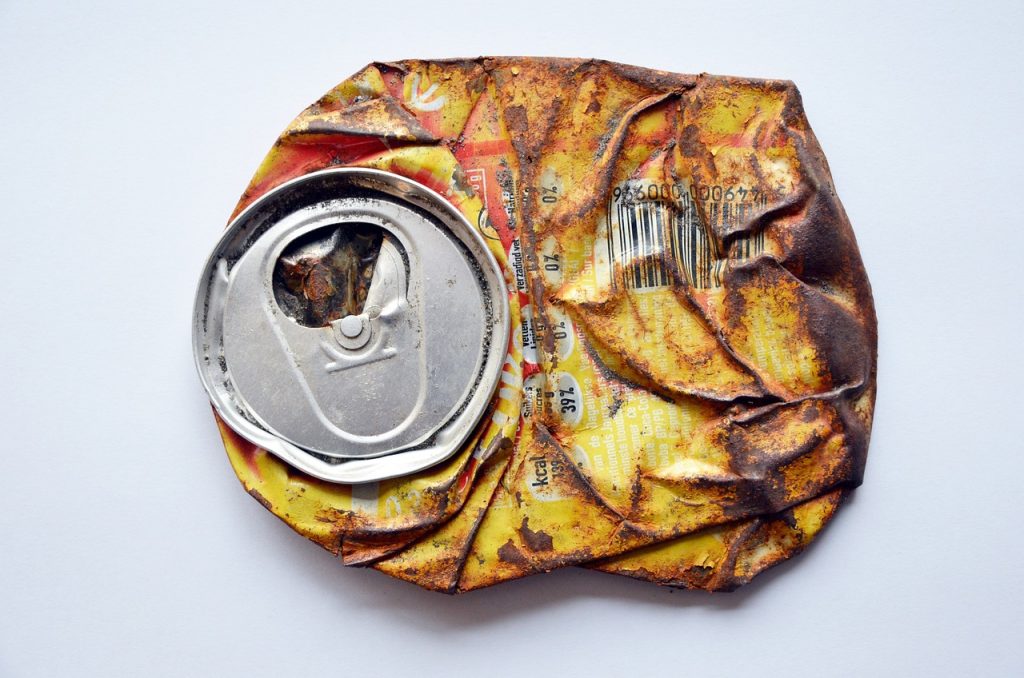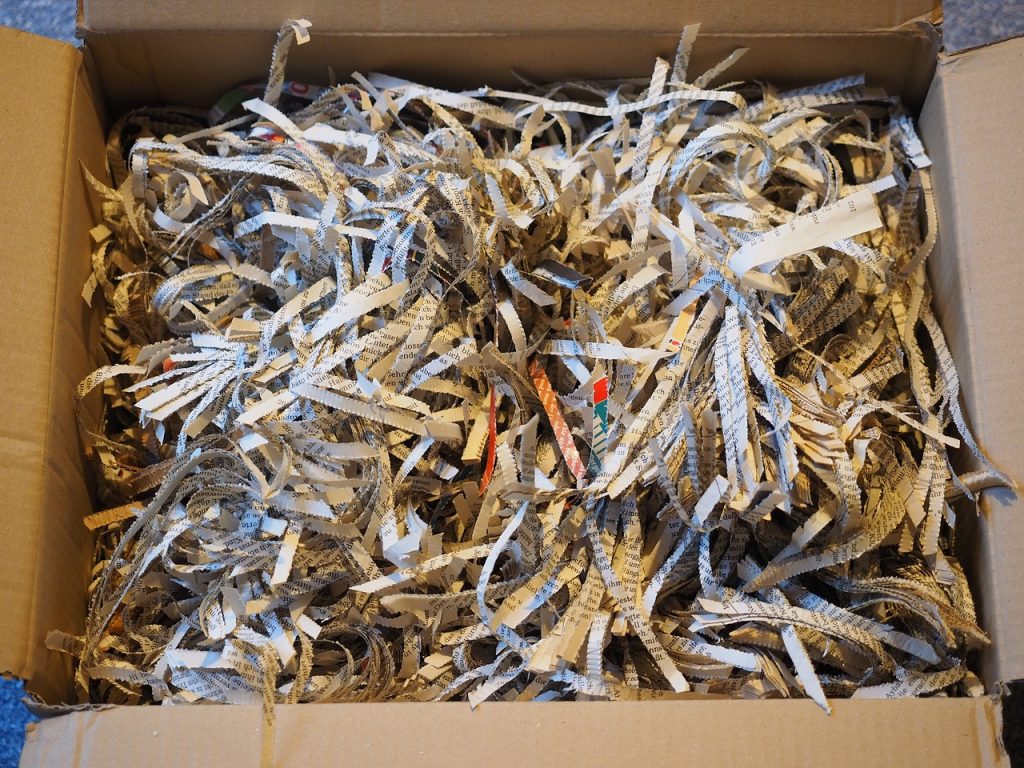- Rinse aluminum cans and foil to remove any residue.
- Store in a sturdy bag or bin designated for recyclables.
- Collect and transport to a recycling center.
- Separate genuine aluminum materials from non-aluminum ones.
- Compact cans and foils into large blocks.
- Transport blocks to an aluminum plant for further processing.
- Shred and heat the aluminum to remove impurities.
- Cool the molten aluminum to form large slabs of pure aluminum.
- Manufacture the pure aluminum into new products.
Understanding How to Recycle Aluminum Cans and Foil: The Process of Aluminum Recycling
The world’s view on the importance of recycling has changed dramatically over the years. In particular, understanding how to recycle aluminum cans and foil has become a topic of interest for many households worldwide. This article will delve into the process of aluminum recycling, giving you a comprehensive look at the procedure. So, let’s unravel the steps to recycle aluminum foils and cans.
Aluminum is an essential metal that’s used daily in a myriad of ways. However, we often disregard the importance of recycling aluminum, resulting in its disposal rather than processing it for reuse. Every year, the recycling rate for aluminum in many parts of the world is astoundingly low, despite aluminum being 100% recyclable. Therefore, it’s of legitimate interest to shed some light on the recycling process of this valuable metal.
Before we dive into the actual process, it’s crucial to touch upon the storage details of aluminum cans and foil. After use, rinse them clean to prevent attracting pests. The ideal choice for storage is a sturdy bag or a bin specifically for recyclables to keep them organized and clean until they reach the recycling center.
The first step in the process of recycling aluminum is collection. The collected recyclables are then taken to a recycling center where the genuine aluminum cans and foils are separated from the non-aluminum materials. The next step in the process involves compacting the cans and foils into large blocks. The aluminum scrap is then transported to an aluminum plant for further processing.
At the aluminum plant, the blocks undergo shredding and heating. The heating process is essential in removing impurities, turning the aluminum scrap into a molten state. This molten aluminum is then cooled to create large slabs of pure aluminum, ready to be manufactured into new products. This entire recycling process not only helps in minimizing the wastage of aluminum but also contributes to its unlimited lifecycle.
Aluminum recycling offers several benefits. It conserves natural resources, saves energy, reduces landfill dumping, and contributes to the economy. However, these benefits can only be realized if we, as a society, are consent to the legitimate process of recycling. But, how do we reach this level? Besides encouraging residential recycling, businesses also play a crucial role in boosting the recycling rate. They can establish effective recycling programs, encouraging employees and customers to recycle.
In conclusion, the process of recycling aluminum is a straight-forward, yet crucial exercise. It requires simple storage, collection, and delivery processes for the aluminum cans and foil to the recycling centers. At these centers, the aluminum is transformed back into pure, reusable aluminum. So, the next time you wrap up your lunch in aluminum foil or gulp down a beverage from an aluminum can, remember, you hold the power to decide whether the aluminum ends up in a landfill or is recycled back into a new product.
The choice is yours to make. Take this step to recycle aluminum, embrace an environmentally friendly lifestyle, and contribute positively to Mother Nature.
Why Aluminum Cans and Aluminum Foil Recycling are Essential for Energy Conservation
If you’ve ever pondered the question of why recycling aluminum – more specifically, aluminum cans and aluminum foil – is worthy of your time and effort, the answer lies heavily in energy conservation. The global importance of energy conservation cannot be overstated and aluminum recycling plays an integral role in reducing energy consumption. By recycling aluminum products such as cans and foil, it’s possible to save as much as 95% of the energy needed to produce new ones from raw ore. Think about that for a minute. That’s significant energy saving right there.
Aluminum is a highly versatile metal, extensively used in a variety of everyday products, notably aluminum cans and aluminum foil. It’s endlessly recyclable and retains its properties indefinitely. When you drink out of an aluminum can and later recycle it, it can be back on a store shelf within 60 days. This is an amazing turnaround that uses only a fraction of the energy required to manufacture a can from scratch.
When you recycle aluminum cans and aluminum foil, you contribute to a significant reduction in energy use and related emissions. The recycling of just one aluminum can saves enough energy to power a TV for around three hours. That’s the power of recycled aluminum going directly to energy conservation.
Aluminum recycling isn’t just about the cans, though. Aluminum foil is widely used, yet unfortunately, it isn’t recycled as often as it could or should be. It’s just as recyclable as aluminum cans, yet people often toss foil into the garbage without a second thought. If we can raise awareness and increase the rate of recycling both aluminum cans and foil, there’s potential for huge energy savings on a global scale.
We need to flip the switch in our brains from viewing recycling as a chore or hassle to seeing it as an opportunity for ourselves and the planet. The process of aluminum recycling might seem complicated, but it’s simpler than you might think. Aluminum cans and foil are melted down, purified, and molded into new products, all without any loss of quality or strength. And as pointed out earlier, this process uses far less energy than manufacturing new aluminum.
In conclusion, it’s pretty simple. Aluminum products are an energy source waiting to be exploited. By recycling aluminum cans and foil more extensively, we could save enormous quantities of energy. The question is, are we ready to seize this opportunity? The fight for energy conservation isn’t just for big corporations or governments; it’s something that every one of us can contribute to. With every aluminum can and foil wrapper you recycle, you’re doing your part for energy conservation and making aluminum recycling everyone’s business.
The Energy Savings of Recycling Aluminum Cans and Foil
In the quest for a more green and energy-conscious society, aluminum recycling plays a pivotal role. When we consider the term ‘recycling,’ we often think of paper or plastic, but aluminum, specifically aluminum cans and foil, is another recyclable that shouldn’t be overlooked. The act of recycling these items may seem mundane, yet the energy savings of recycling aluminum cans and foil are truly remarkable. Due to aluminum’s high energy content, recycling it can lead to great savings in energy.
So, what does this mean? It’s no secret that the production of new materials often requires an immense amount of energy. However, when recycled, aluminum uses only a fraction of that energy; in fact, producing recycled aluminum cans consumes 95% less energy than creating new ones from raw materials. Given the sheer number of cans in circulation, you can imagine the potential for energy conservation simply through aluminum can recycling.
Foil, too, adds to this picture of energy savings. Similar to cans, the recycling of aluminum foil equally results in substantial energy conservation. Often used in our households for a myriad of practical applications, foil is almost as ubiquitous as aluminum cans. Ensuring that we recycle it creates a significant impact on overall energy consumption.
Understanding how to recycle aluminum cans and foil can be a game-changer for the environment. By recycling our aluminum items, we actively contribute to the reduction of energy waste. Just imagine: every can or piece of foil you drop into that green, recycling bin makes an incredible difference. This simple act of living green goes beyond merely keeping our surroundings clean; it is a powerful step towards energy conservation.
So, you might ask now, ‘why does aluminum recycling lead to such immense energy savings’? The answer lies in the elements. Aluminum is abundant in the earth’s crust; however, the process of extracting it is energy-intensive. On the other hand, recycling aluminum requires no extraction or refinement, hence drastically cutting the energy used in these preliminary processes.
Just how significant are these energy savings? To provide a visual, consider this: the energy saved by recycling a single aluminum can would suffice to power a television for around three hours. This saving isn’t insignificant when we consider the countless aluminum cans and foils that we use on a daily basis—reflecting on this notion, it isn’t hard to see the integral role that aluminum recycling plays in our energy conservation efforts.
The process of aluminum recycling might seem complex, but it’s a procedure that has immense benefits for our planet. By understanding and embracing the importance of recycling our aluminum cans and foil, we’re not merely participating in an eco-friendly practice; we’re helping to conserve valuable energy resources. Each can and piece of foil that we recycle brings us one step closer to a more sustainable and energy-efficient world.
In conclusion, do your part for the environment. Recycle your aluminum cans and foil. You’re not just being a responsible citizen or protecting the environment, but you’re also contributing to remarkable energy savings. Remember, aluminum recycling isn’t just about conserving resources; it’s about power. The power to make a difference and influence the world’s energy consumption. Start recycling today!
Efficient Ways to Recycle Aluminum Foil and Cans in April: The Prime Month for Aluminum Recycling
Aluminum recycling, covering both aluminum cans and aluminum foil, significantly contributes to energy conservation. It’s a process that has gained traction over time, with people becoming more aware of its importance. It’s no wonder at all why making aluminum recycling part of their everyday routine is a thing for most households. So, how do we efficiently recycle aluminum foil and cans from our homes, particularly in the prime month of April?
One might wonder, why is April deemed the prime month for aluminum recycling? The answer is simple. Waste management and recycling programs usually run clean-up drives and campaigns in April, coinciding with Earth Day. Hence, the consciousness and participation level tend to be significantly high. So, it’s the perfect month to harness this heightened awareness to efficiently recycle, particularly targeting aluminum, and most especially aluminum cans, given their prevalent use.
Let’s get into the process. Aluminum cans are an ideal recyclable material due to their design. However, before you toss them in the recycling bin, make sure they’re clean. Rinse them out to remove drink or food remnants that might contaminate the batch. Aluminum foil, on the other hand, needs a bit more work. While you can recycle it, the foil must be clean too. When you’re done using it, rinse it off, dry it, and then crumple it into a ball. The balling process ensures that the thin foils don’t get lost during the sorting process at recycling facilities.
Another helpful tip for efficient home aluminum recycling involves saving space. Crush aluminum cans before tossing them into the bin and rolling foil to economize bin space. This simple act not only makes your recycling bin accommodate more, but it also makes the process much smoother at the recycling facility. With reasonably compact cans, the sorting equipment can easily handle and process them for recycling.
Lastly, consider participating in local recycling drives in your area. Especially during April, communities step up their recycling game. Look out for such drives happening around your home and take the opportunity to offload your aluminum cans and foil. It’s a prime opportunity to recycle aluminum, geared towards conserving energy and maintaining a sustainable environment, all while keeping your home waste-free.
There’s no doubt that the process of aluminum recycling, especially aluminum cans and foil, is a sustainable way to conserve energy. But beyond that, it keeps our homes clean, controls waste, and fosters a culture of recycling. So let’s make every month an April, the prime month for aluminum recycling, and continue to recycle efficiently, starting right from our homes.
By Recycling, How Much Energy Can You Save? A Look at Recycled Aluminum
When we’re talking about recycling, it’s not just a matter of reducing trash in our landfills. It’s about understanding how every small act of care for our environment, like recycling aluminum cans and foil, can ultimately save a significant amount of energy. By recycling, how much energy can you save? And more precisely, what’s the true impact when we look at recycled aluminum?
First, let’s talk about how to recycle. Whether it’s aluminum cans from your iced coffee or the aluminum foil from last night’s leftovers, the process of recycling these materials is relatively straightforward. You’d be surprised to know that the simple act of recycling your aluminum can save an incredible amount of energy and resources. When we recycle aluminum, we can conserve up to 95% of the energy it would take to create brand-new materials. Yes, recycling your aluminum materials saves this much energy!
This is where the big picture starts to become clearer. The more we recognize the need for recycled aluminum, and the more we participate in recycling household items like aluminum cans and foil, the more we can do our part to conserve. On a larger scale, this could lead to an immense positive change on the energy conservation front. So, why is aluminum recycling essential for energy conservation? The answer lies in the energy savings drawn from recycled aluminum, energy that can be used for other essential processes in our daily lives.
When we recycle aluminum, we’re feeding into a cycle of reuse and sustainability that directly leads to energy savings. Energy savings from recycled aluminum are not just significantly high but also relatively easy to achieve if we all chip in. Thankfully, aluminum is 100% recyclable, meaning that no matter how many times it’s recycled, it retains its natural properties, making it an ideal candidate for continuous recycling.
No matter what time of year, recycling aluminum is an easy yet effective way to help save energy. Whether it’s cans or foil, any recycled aluminum contributes to a decrease in energy needs. Sounds worth it, doesn’t it? The repercussions of our everyday habits stretch far and wide. But by recycling aluminum, we can actively take a stand against the overuse of energy resources and pave the way for a more sustainable lifestyle.
So, the next time you finish that soda or unwrap that sandwich, remember the surprising energy savings behind that simple can or piece of foil. Recycle it, and be part of the solution. Every time you choose to recycle, you’re choosing a future with less waste and more energy. By now, we hope you have a broader look at recycled aluminum and its impact on our energy reserves.
A Closer Look at Aluminium: A Key Player in Creating a Sustainable Future through Recycling
Taking a closer look at aluminium, it’s immediately clear that this humble metal is undoubtedly a key player in the creation of a sustainable future. Through the process of recycling, we’re able to eliminate unnecessary waste, and create a system whose overall benefits reach much further than simply being green. Sustainability is about much more than just the world we want to provide for future generations. It’s about making meaningful changes today, for the world we live in now.
When we talk about sustainability, we often speak about things in terms of being recyclable. And when you look at aluminium, it does indeed fit that bill. In fact, one of the incredible things about aluminum is that it can be endlessly recycled. This means that an aluminum can that you recycle today could very well end up back in your home in the form of a new product in just a couple of months. That’s the beauty of recycling aluminum—it’s a circular process that can greatly reduce waste.
Being recyclable is only part of what makes aluminum an essential part of sustainability. How much energy can you save? Well, when it comes to recycled aluminum, the stats are impressive. Recycling aluminum cans and foil saves 95% of the energy compared to making new aluminum from bauxite ore. That’s an enormous energy savings, and the reason why aluminum recycling is so important in terms of energy conservation.
It’s not just about being green, though. Or about how much energy can be saved. There’s another component to it all as well. Aluminium recycling is a critical part of waste reduction and contributes significantly to sustainability. After all, every aluminum can or piece of foil that gets recycled is one less item in our landfills. It’s that simple and that profound. In fact, in a world where our waste issues are becoming increasingly challenging, aluminum recycling becomes even more critical.
Now, you might be thinking, how can I participate in this? Recycling aluminum might seem like a simple task, but there’s more to it than simply tossing your soda cans in the recycling bin. April is prime time for aluminum recycling, but it shouldn’t just be a once a year activity. It takes a little bit of knowledge on proper recycling techniques, a commitment to recycle aluminum consistently, and often a change in policy at home or at work to really embrace this opporunity.
Moving forward, ensuring we’re recycling aluminum effectively will be essential in achieving a sustainable future. Policies need to be put in place, at both the individual and community levels, to increase recycling rates. After all, aluminum recycling is a simple and effective step each of us can take to do our part in creating a more sustainable world.
So, let’s all take a closer look at aluminum—it’s time we recognize it as the key player it is. Both in recycling and more broadly, in the fight for sustainability. Because the future will be what we make it, and recycling aluminum is an important start.




